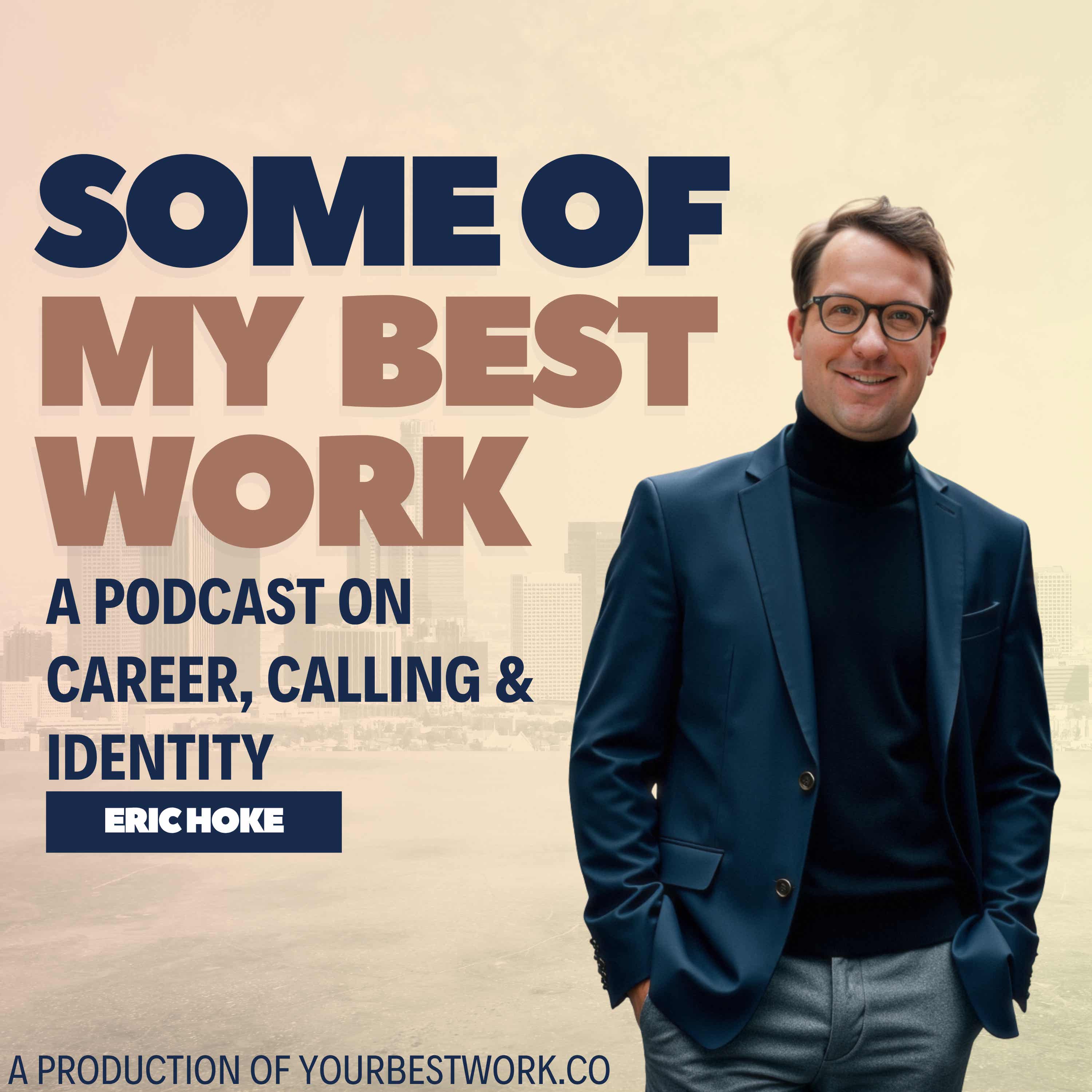

Some of my Best Work with Eric Hoke
Eric Hoke
Conversations on Career, Calling, Identity erichoke.substack.com
Episodes
Mentioned books

Mar 27, 2025 • 49min
Special Edition Podcast - Interview with Guy Wasko - Certified LifePlan Facilitator
Highlights & Practical Takeaways from the How to Detox without Deconstructing:Main Themes:* Detox Without Deconstruction:* The conversation focuses on how pastors can transition out of ministry (or into a new phase of ministry) without losing their faith.* Detoxing from unhealthy aspects of ministry is different from fully deconstructing and abandoning faith.* Identity & Vocation:* Many pastors tie their identity to their role, making transitions difficult.* Guy shares how he had to redefine his identity beyond being a senior pastor.* Navigating Career Transitions:* Pastors often wrestle with vocational shifts but fear losing purpose.* The Patterson Life Plan was a pivotal tool in guiding Guy through career changes.* Church Planting Realities:* The romanticized vision of church planting often doesn’t align with reality.* The heartbreak of not seeing expected growth can lead to grief and even bitterness.* Challenges in the Modern Church Model:* Traditional church structures (financial models, leadership hierarchies) often hinder effectiveness.* Guy now prefers micro-church and community-driven models over large, attractional churches.* Finding Community After Leaving Ministry:* One of the biggest struggles after stepping away from full-time ministry is finding deep, meaningful community.* Many former pastors realize how much of their social life was built into their pastoral role.Practical Takeaways:* Reassess Your Calling Regularly:* Ministry doesn’t have to be tied to a local church staff position.* God’s calling may include work outside traditional church settings.* Prioritize Identity in Christ Over Role:* A role change doesn’t mean a loss of worth.* Be intentional about defining identity beyond “Pastor [Your Name].”* Expect Grief in Transition:* Leaving ministry can feel like a major loss.* Take time to process it healthily—don’t let grief turn into bitterness.* Invest in a Support System Early:* Build relationships outside of your ministry role before transitioning.* This prevents feelings of isolation when you leave a church position.* Consider a Life Plan Process:* Guy highly recommends structured life-planning frameworks to help with major transitions.* Having a coach or mentor to guide decision-making is invaluable.* Explore Alternative Church Models:* If traditional church leadership feels restrictive, microchurch or polycentric leadership structures might be a better fit.* Ministry can happen in new and innovative ways.* Be Mindful of Deconstruction vs. Detox:* Removing toxic elements of ministry (burnout, unrealistic expectations) is necessary.* But avoid throwing away faith altogether—healing and refining are possible.If you want to stay in touch with Guy or are interested in his services as a Certified LifePlan Facilitator, his e-mail is guywasko@gmail.com.As always, thanks for listening, and if you have questions you’d like me to address on the podcast - e-mail me at eric@ihelppastorsgetjobs.com.This Substack is reader-supported. To receive new posts and support my work, consider becoming a free or paid subscriber. Get full access to Eric Hoke at erichoke.substack.com/subscribe

Mar 20, 2025 • 17min
Episode 2: Fear of Failure and Prayer as Procrastination
Thank you so much for everyone who listened to and supported my debut podcasts last week (and for your feedback on making the audio better, I asked for a podcast mic for my birthday):Today’s episode is your questions answered, and here were the questions I was asked and aimed to answer:How do you ensure you don’t feel at your side hustle?* Failure is likely in early stages; expect to pivot rather than quit.* Start small with minimal risk before scaling up.* Reframe failure as an opportunity to iterate and improve.* Don’t let fear of others' opinions stop you from trying.How has prayer played a role in your side hustle?* Avoid using prayer as a form of procrastination—"When you pray, move your feet."* Balance introspection (alone time) with seeking counsel from mentors and peers.* Side hustles require perseverance; expect challenges and sacrifices.* Your work and struggles refine your character rather than define you.Takeaways:* Start small, test ideas, and iterate.* Don’t overthink—take action and learn from failure.* Use prayer for guidance, but don’t let it stall your progress.* Lean on mentors and community for direction.* Expect hardships as part of meaningful work.As always, thanks for listening, and if you have questions you’d like me to address on the podcast - simply reply to this e-mail. This Substack is reader-supported. To receive new posts and support my work, consider becoming a free or paid subscriber. Get full access to Eric Hoke at erichoke.substack.com/subscribe

Mar 13, 2025 • 13min
Podcast Experiment - Episode 1: Your Questions around Side Hustles & Mentors
Today’s episode of “Your Best Work: The Podcast” I am fielding your questions regarding side hustles and how to find a mentor.Question 1: What kind of Side Hustle should I do? * Avoid generic side hustles (Uber Eats, barista jobs) and instead, leverage existing skills from your full-time job.* Identify what comes naturally to you and what people are already willing to pay for.* Example: If you’re skilled in operations, consider becoming a wedding coordinator as a niche, high-value side hustle. Call it Hitched without a Hitch!* Start small and focus on monetizing what you do best rather than taking on unrelated work.Question 2: How can I find a mentor? * Set realistic expectations—mentors are not therapists or lifelong guides.* Seek advice from people a year or two ahead of you, rather than high-profile experts.* Be specific in your requests; a quick email exchange can be more impactful than a formal mentorship.* Sometimes, mentorship is worth paying for, especially in areas like executive coaching or skill development.Takeaways:* Choose a side hustle that builds on your existing strengths.* Think strategically—don’t just trade time for money.* Mentorship is valuable, but keep your expectations reasonable.* Invest in guidance when needed—sometimes, paying for mentorship is the best move.If you have questions on calling, vocation and identity that you’d like me to address on this platform, just respond to this e-mail and I’d be happy to answer. Get full access to Eric Hoke at erichoke.substack.com/subscribe


